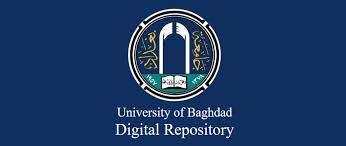الديمقراطية التوفيقية لدى أبرز مفكري سوريا ولبنان أواخر العهد العثماني (1869_1924م)
DOI:
https://doi.org/10.51930/jcois.21.73.0370الكلمات المفتاحية:
(فكري ، ، ثقافي ، ، طغيان ،، استعباد ، ، جمعيات)الملخص
ظهرت نخبة من رجالات الفكر والتنوير في سوريا ولبنان في منتصف القرن التاسع عشر وكان هدفها تغيير الواقع المرير في بلدانهم المنضوية تحت لواء الدولة العثمانية خصوصاً في الحقبة الزمنية التي حكم فيها جماعة الاتحاد والترقي ، وأخذوا على عاتقهم وضع اللبنات الأساسية للنهضة الفكرية بعد الاتصال بالأوربيين والاطلاع على الحضارة الأوربية ، وأسهمت جملة من العوامل الثقافية في بلورة هذه النهضة منها : الصحافة ، والرحلات ، والجمعيات ، والمنتديات الأدبية ، فضلاً عن البعثات التبشيرية التي ساهمت في نقل الكثير من مظاهر الثقافة الغربية إلى بلدانهم .
كان ظهور نخبة من المثقفين أمثال عبد الرحمن الكواكبي ، وبطرس البستاني ، وآخرون في سوريا ولبنان الذين قد أخذوا على عاتقهم إيضاح مفاهيم الاستبداد والديمقراطية إلى السلطات الحاكمة في دولهم ، ومقارعة سياسة التتريك التي انتهجتها جمعية الاتحاد والترقي .
تم تقسيم البحث على مطلبين ومقدمة وخاتمة وقائمة مصادر ، تناول المطلب الأول : الديمقراطية بمنظور مفكري سوريا ولبنان ، أما المطلب الثاني : فقد ناقش التوفيقية الإصلاحية واعتمد البحث على مصادر كان أبرزها الفكر السياسي في المشرق العربي أواخر القرن التاسع عشر حتى عام 1914م لعبد الزهرة مكَطوف ، وطبائع الاستبداد ومصارع الاستعباد لعبد الرحمن الكواكبي ، وفلسفة النشوء والارتقاء لشبلي الشميل .
المراجع
ألبرت حوراني ، الفكر العربي في عصر النهضة ۱٧٩٨- ۱۹۳۸م ، ترجمه كریم عزقول ، دار الهناء للنشر ، بيروت ، 1977م ، ص309_310 .
شبلي الشميل ، فلسفة النشوء والارتقاء ، دار مارون عبود بیروت ۱۹۸۳م ، ص 25_31 .
شتيوي عبد مطر ، اتجاهات حركة النهضة العربية الحديثة الإصلاحي - القومي - التاريخي – التقدمي - الوحدوي ، الدراسات التاريخية الحضارية (مجلة) ، تكريت ، العدد 12، جامعة تكريت ، حزيران ۲۰۱۲م ، ص 6_7 .
ظاهر محمد صكَر الحسناوي ، شكيب ارسلان : الدور السياسي الخفي ، ط1 ، لبنان ، رياض الريس للكتب والنشر ، 2002م ، ص23_43 .
________ ، شكيب ارسلان : المضمون القومي في الفكر السياسي ، آفاق عربية (مجلة) ، بغداد ، العدد 12 ، السنة السادسة عشرة ، 1991م ، ص58 .
عبد الرحمن الكواكبي ، طبائع الاستبداد ومصارع الاستعباد ، ( كلمات ، القاهرة ، ۲۰۱۱م ) ، ص12 .
عبد الزهرة مكَطوف ، الفكر السياسي في المشرق العربي أواخر القرن التاسع حتى عام 1914م ، بغداد ، دار الشؤون الثقافية العامة " أفاق عربية " ، ۲۰۰۱م ، ص 98_99 .
عزت قرني ، العدالة والحرية في فجر النهضة العربية الحديثة ، عالم المعرفة ، الكويت ، ۱۹۸۰م ، ص ١٥٧.
فايز علم الدين القيس ، اثر المعلم بطرس البستاني (۱۸۱۹-۱۸۸۳م) في النهضة في لبنان ، دار الفارابي ، بیروت ۲۰۰۵م ، ص٣٦ .
________ ، مسعود ظاهر ، المعلم بطرس البستاني ومأساة رواد النهضة بنا ، المستقبل (جريدة) ، بيروت ، الأحد 30 كانون الثاني 2005م ، ص14 .
ماجدة حمود عبد الرحمن الكواكبي فارس النهضة والأدب_ دراسة ، اتحاد الكتاب العرب دمشق ، ۲۰۰۱م ، ص18_20 .
محمد جابر الأنصاري ، تحولات الفكر والسياسة في الشرق العربي (1930_1970م) ، علم المعرفة ، كويت ، 1980م ، ص8_9 .
Awwalan : al-maṣādir : _
. Albirt Ḥūrānī, al-Fikr al-ʻArabī fī ʻaṣr al-Nahḍah 798tarjamahu krیm ʻAzqūl, Dār al-hanāʼ lil-Nashr, Bayrūt, 1977M, ṣ309 _ 310.
. Shiblī al-Shumayyil, Falsafat al-nushūʼ wa-al-irtiqāʼ, Dār Mārūn ʻAbbūd brwt, Ṣ 25 _ 31
. Shutaywī ʻAbd Maṭar, Ittijāhāt Ḥarakat al-Nahḍah al-ʻArabīyah al-ḥadīthah al-iṣlāḥī-al-Qawmī-al-tārīkhī – al-Taqaddumī-al-Waḥdawī, al-Dirāsāt al-tārīkhīyah al-ḥaḍārīyah (Majallat), Tikrīt, al-ʻadad 12, Jāmiʻat Tikrīt, Ḥazīrān, Ṣ 6 _ 7.
āhir Muḥammad ṣkar al-Ḥasnāwī, Shakīb Arslān : al-Dawr al-siyāsī al-khafī, Ṭ1, Lubnān, Riyāḍ al-Rayyis lil-Kutub wa-al-Nashr, 2002M, ṣ23 _ 43.
. Ẓāhir Muḥammad ṣkar al-Ḥasnāwī, Shakīb Arslān : al-maḍmūn al-Qawmī fī al-Fikr al-siyāsī, Āfāq ʻArabīyah (Majallat), Baghdād, al-ʻadad 12, al-Sunnah al-sādisah ʻashrah, 1991m, ṣ58.
. ʻAbd al-Raḥmān al-Kawākibī, Ṭabāʼiʻ al-istibdād wa-maṣāriʻ al-istiʻbād, (Kalimāt, al-Qāhirah), ṣ12.
ʻAbd al-Zahrah mkaṭwf, al-Fikr al-siyāsī fī al-Mashriq al-ʻArabī awākhir al-qarn al-tāsiʻ ḥattá ʻām 1914m, Baghdād, Dār al-Shuʼūn al-Thaqāfīyah al-ʻĀmmah "Afāq ʻArabīyah
ʻIzzat Quranī, al-ʻadālah wa-al-ḥurrīyah fī Fajr al-Nahḍah al-ʻArabīyah al-ḥadīthah, ʻĀlam al-Maʻrifah, al-Kuwayt,
. Fāyiz ʻilm al-Dīn al-Qays, Athar al-Muʻallim Buṭrus al-Bustānī fī al-Nahḍah fī Lubnān, Dār al-Fārābī, bیrwt, ṣ36.
. Fāyiz ʻilm al-Dīn al-Qays, Masʻūd Ẓāhir, al-Muʻallim Buṭrus al-Bustānī wa-maʼsāt Rūwād al-Nahḍah Bannā, al-mustaqbal (Jarīdat), Bayrūt, al-Aḥad 30 Kānūn al-Thānī 2005m, ṣ14.
Mājidah Ḥammūd ʻAbd al-Raḥmān al-Kawākibī Fāris al-Nahḍah wa-al-adab _ dirāsah, Ittiḥād al-Kitāb al-ʻArab Dimashq, , ṣ18 _ 20.
. Muḥammad Jābir al-Anṣārī, Taḥawwulāt al-Fikr wa-al-siyāsah fī al-Sharq al-ʻArabī (1930 _ 1970m), ʻilm al-Maʻrifah, Kuwayt, 1980m, ṣ8 _ 9.
Thānyan : al-ṣuḥuf wa-al-majallāt
al-Ṣuḥuf :
_ Īlāf, Landan, 2014m.
_ al-mustaqbal, Bayrūt, 2005m.
al-Majallāt :
_ Āfāq ʻArabīyah, Baghdād, 1991m.
_ al-Dirāsāt al-tārīkhīyah al-ḥaḍārīyah, Tikrīt, 2012m.
Thālthan : al-mawsūʻāt
_ Aʻlām al-ʻArab.
Rābʻan : mawāqiʻ alāntrnyt
_ yanẓur al-mawqiʻ al-tālī ʻalá alāntrnythttp / / www. ssrcaw. org, wa-ʻalá al-ʻUnwān al-ātī ʻAbd al-Wahhāb Ḥamīd Rashīd al-taḥawwul al-dīmuqrāṭī wa-al-mujtamaʻ al-madanī, Markaz al-Dirāsāt wa-al-Abḥāth al-ʻAlmānīyah fī al-ʻālam al-ʻArabī.
yanẓur al-mawqiʻ al-tālī ʻalá alāntrnyt : http / / www. azad-hye. org, wa-ʻalá al-ʻUnwān al-ātī : Salīm Barakāt, al-ḥurrīyah fī Mafhūm Adīb Isḥāq.
.jpg)
2.png)







